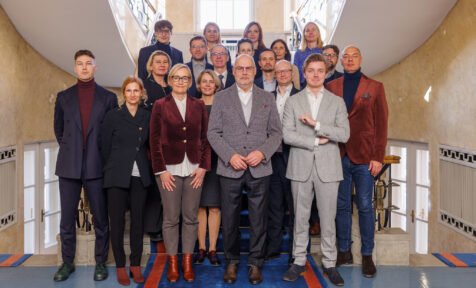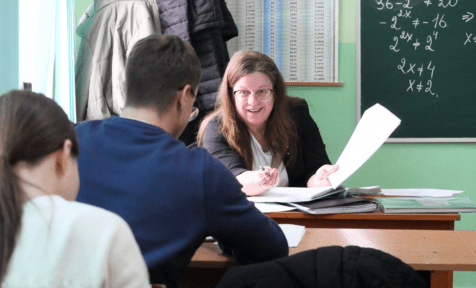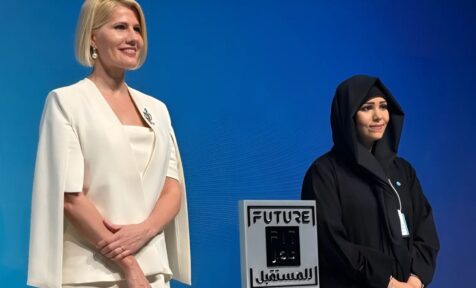As digitalisation has reshaped economies across the world, it has also resulted in a shortage of skilled ICT workers. However, Estonia – the country ranking 1st in Europe in OECD’s international survey PISA – has yielded excellent results resolving the shortage with the right educational policies in place. From technology education programme ProgeTiger to Unicorn Squad for girls aged 8-12.
Estonia’s success derives from comprehensive strategies that focus on sparking young people’s interest in IT education and enabling lifelong ICT retraining in society. The country’s success has set an example for many other countries.
Starting from an early age
In order to attract more young people to ICT fields and introduce them to future possibilities in the area, Estonia launched a programme called ProgeTiger in 2012. The programme is aimed at encouraging preschool, general, and vocational education teachers to use technology – including programming and robotics – more widely in their teaching. „In 9 years we have reached a point where 99% of Estonian kindergartens and 98% of comprehensive schools have taken part in ProgeTiger’s activities in one way or another,“ reports Kristi Salum, the Program Manager at ProgeTiger. However, she points out that it does not mean that 99% of kids are taking part in the program, rather it marks that most institutions have created a chance to learn ICT. Moreover, the learning processes are always adjusted to the age of the children. “If we give children at an early age the knowledge and skills to understand, use and create technology themselves, they will be much more prepared for the future,“ Salum says. She also explains that starting with ICT education at such an early age has made education professionals think more about future education. „When kids start to learn IT at such a young age, we also have to think about what our education system has to offer them at the higher education level,“ explains Salum, bringing up discussions with universities.
Unique collaboration
For a long time, it has been a common understanding in many countries that governments are solely responsible for the provision of education. Signe Ambre, the Program Manager of a governmental initiative called IT Academy, explains that it is thus a challenge of its own to determine whether the ICT graduates meet the expectations of employers. Estonia has once again found an innovative solution by asking employers to contribute to shaping education. „The programme is one of a kind. Together with all the parties, we have set collective objectives that consider the needs of entrepreneurs and state on the one hand, and the abilities of the universities and vocational education institutions on the other,“ Ambre states. The results are excellent, as according to Ambre, every ninth (2022: 10.7%) student chooses to study ICT at the bachelor’s and applied higher education level, which she confirms to be optimal. Moreover, the share of those who choose ICT at the master’s level has grown even faster in the last 10 years: every seventh student who enters master’s studies chooses to study ICT.
Women in ICT
A well-known concern in the ICT-sector is the high gender disparity as sector young women are less likely to continue their academic path in IT or choose their career compared to men. According to Robert Lippin, the Deputy Secretary General responsible for secondary and adult education at the Ministry of Education and Research, roughly there are 3 men for every woman in the ICT sector.
This pattern is not only perceived in Estonia but in other countries as well. Both state and non-profit organisations have decided on a collective goal to increase the number of women in tech. Several companies have additionally set up their own internal events, meet-ups, and conferences for women in IT. One of the most unique initiatives is the Unicorn Squad movement, which offers girls aged 8-12 an opportunity to take part in different hands-on activities for learning more about robotics and tech. Today, the club has more than 1600 members, more than 250 mentors, and approximately 130 clubs around Estonia – giving hope that inspiring education and training could be a game-changer.
See also:Three ways public-private partnerships are transforming education. Insights from Estonia
Lippin comments that 40% of students in master’s studies are women, ranking Estonia first in Europe for the share of women in master’s programmes. At the bachelor’s level, Estonia ranks fourth in terms of the percentage of women. Highly active and successful women entrepreneurs have played a major role in introducing girls to ICT, setting a good example for young people.
Lifelong learning
„High demand for ICT specialists and the positive image that opportunities available in the field have created interest in people from various other areas as well,“ Lippin reveals. The interest in lifelong learning has been an inspiration for creating more opportunities for those interested. For example, short intensive courses such as Vali-IT (Choose IT) for learning basic ICT skills have been created. Many companies that are ready to offer further education to those interested, contribute to these programmes as well. ICT has also become integral to other sectors and transformed the way they work. As an example, Estonia’s biggest university, the University of Tartu, has even launched an Information Technology master’s program – “IT for non-experts”,” Lippin describes.
Laura Põldma, Education Estonia





